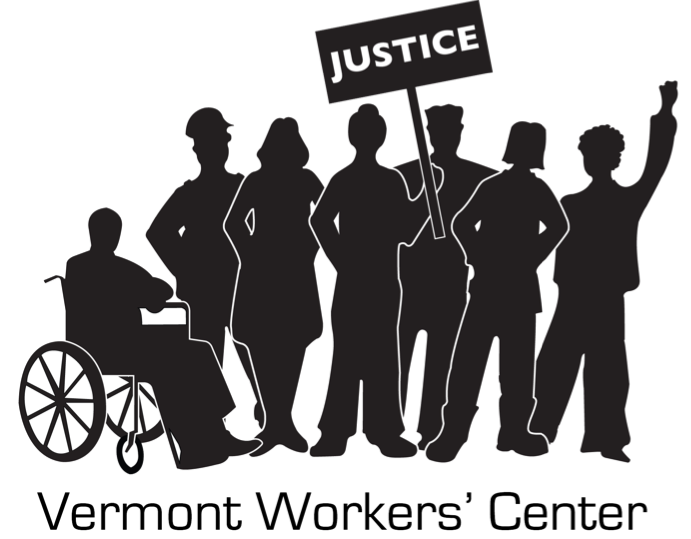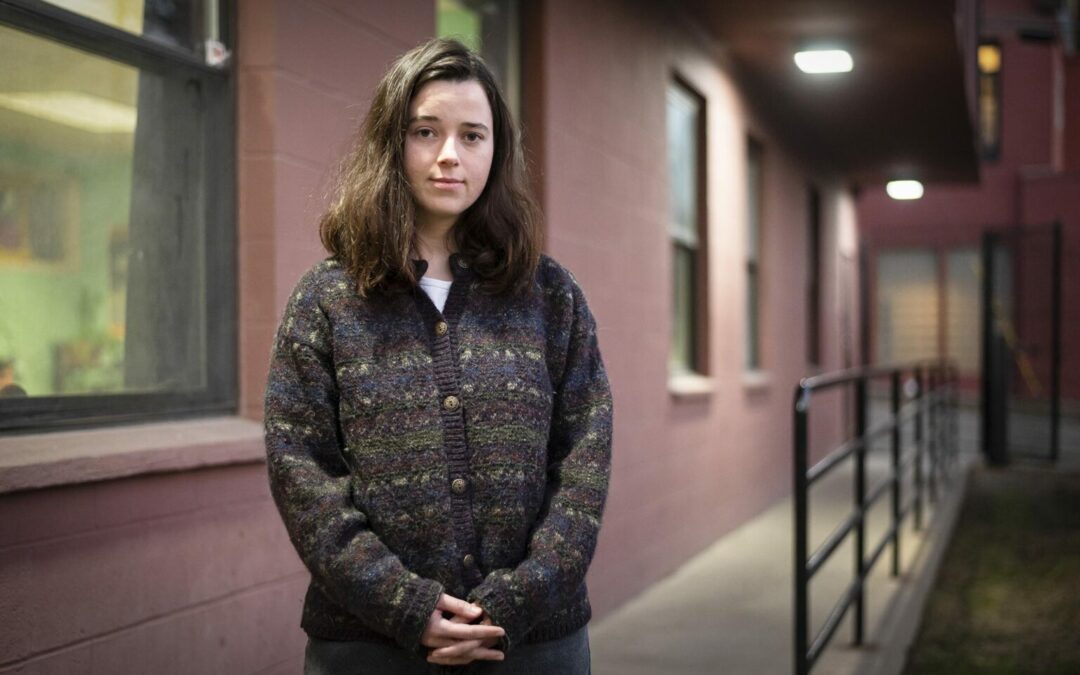Two VWC members were featured in this VTDigger story published on April 23rd—excerpt below. Photo Credit: Glenn Russell/VTDigger.
Erin Kellar, 31, has lived most of her life with chronic disease and is careful to maintain insurance. But in 2020, knowing she would be able to join Medicaid for several years running gave her the freedom to leave her job as a case manager at a methadone clinic and finish a mental health counseling degree.
Soon after graduating early last year, she got sick enough to need an overnight stay in the hospital, where she was diagnosed with Type I diabetes. She paid nothing for that, or for insulin treatments she now needs.
“I was still kind of rebuilding my financial stability and was able to get the care I needed in that moment without the financial burden,” Kellar said. The assurance she would not have the large deductibles and copayments that come with private insurance reduced her stress levels and helped her get well.
“Something people don’t always understand about autoimmune disorders is that stress in general, like the financial burden and uncertainty, exacerbates the symptoms,” she said.
Now Kellar works as a therapist at the Vermont Center for Resiliency in Burlington and expects to lose Medicaid coverage when she is scheduled for reenrollment this summer. She can get insurance through her employer at a cost of about $300 per month if she increases her work hours, but she worries that could put her health at risk.
She also is concerned about her clients, many of whom are in more challenging circumstances and use Medicaid to pay for their time with her. “I’ve got great coping skills. I’ve got a strong community and support, and I’m stressed,” she said.
A disruption in coverage can mean people stop therapy for several months or more. “People who have been doing really important mental health work are going to have that care disrupted,” she said, which she thinks will have “rippling profound impacts on our communities.”
Health care as a human right
Leah Duckett, 25, has used Medicaid as her insurance since she was a child growing up in the Northeast Kingdom. She got a job last fall as a paraeducator at a Burlington elementary school, and now is “hovering around the cutoff” for eligibility.
She likes the position, and it gives her the option to get private insurance. But the change will be a big financial hit. “Paying premiums and paying co-pays on what is basically poverty wages, you know, is going to make my budget really hard, for sure,” Duckett said.
Both Kellar and Duckett have connected with the Vermont Workers’ Center after reflecting on their experiences. The statewide organization advocates for universal health care, under the banners of “Medicaid for all” and “health care as a human right.”
The latter at least is a cause shared by some 59 state legislators who cosponsored H.156 this session. They want to restart a conversation that has faded into the background in recent years, despite being part of Vermont law. Why can’t we provide basic affordable health care for everyone? And, for our most vulnerable citizens, why do we make obtaining it so hard? (In large part, the Medicaid program subdivisions and annual enrollment requirements are set at the federal level.)
Duckett has been spending nights and weekends with the Workers’ Center campaign. They are going door-to-door and setting up tables at events to raise awareness about how badly our complicated patchwork of insurance is failing us. She also makes sure to remind people to look out for the red-striped letter. She’s looking out for hers.
“It’s been hard, you know, having this specter looming over me,” she said. “There are just so many people in my life right now that have this hanging over them.”

